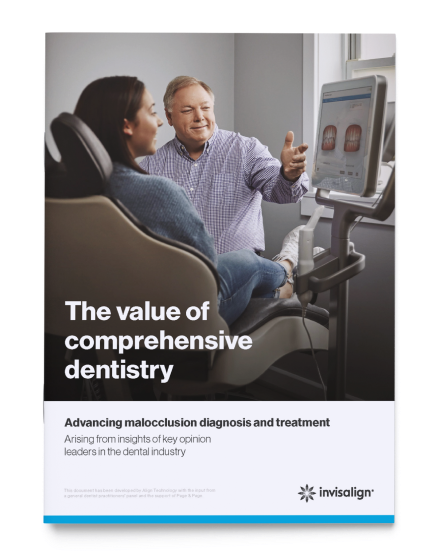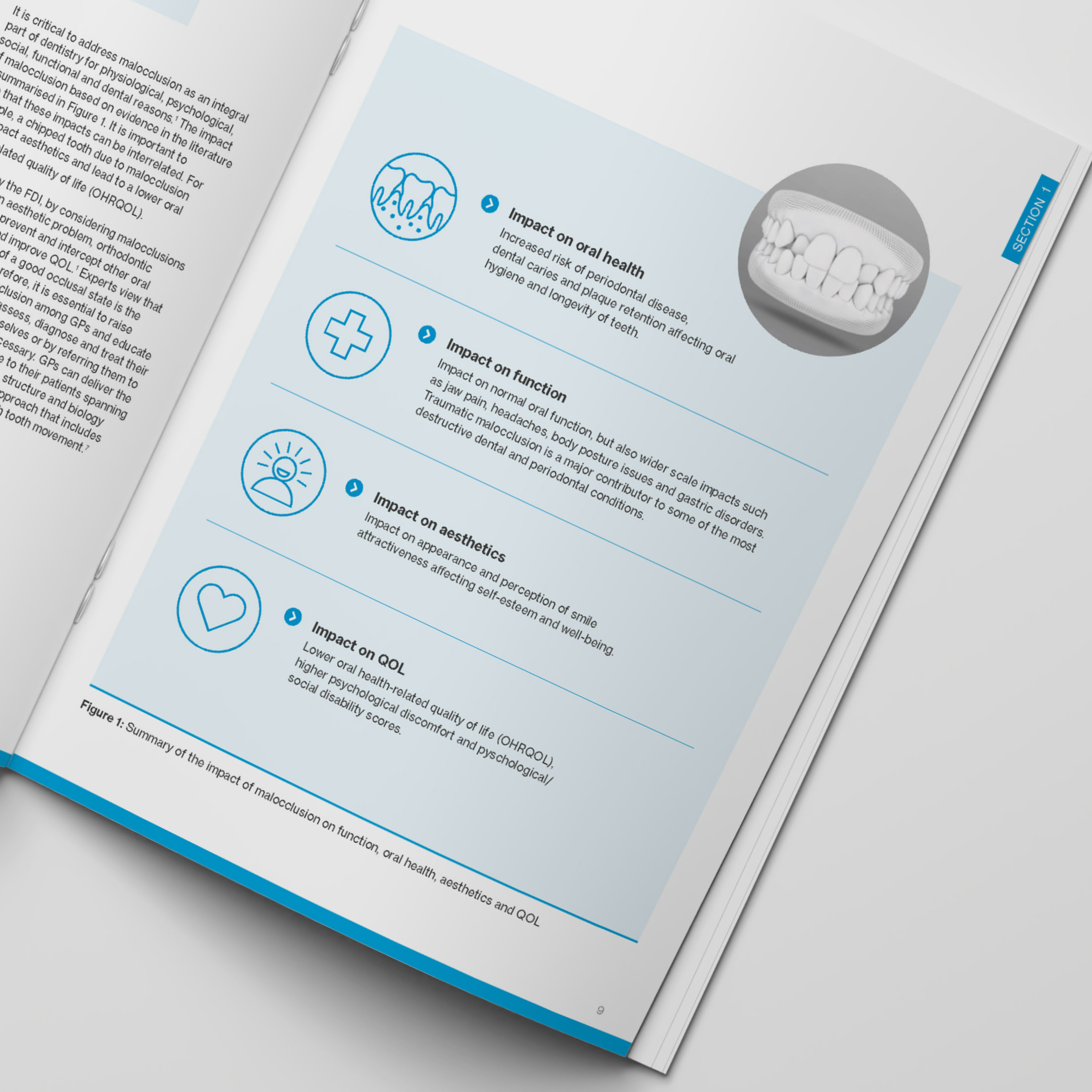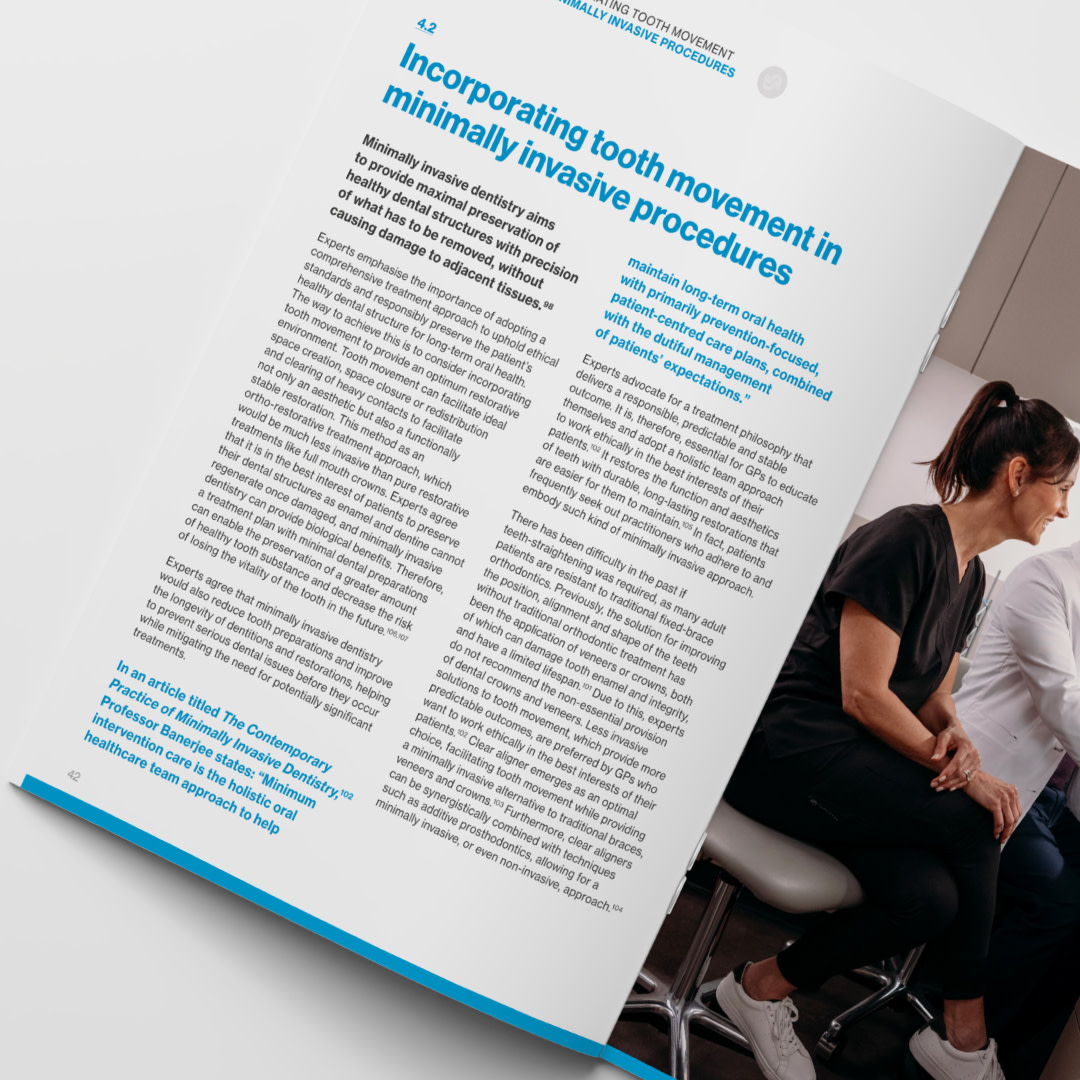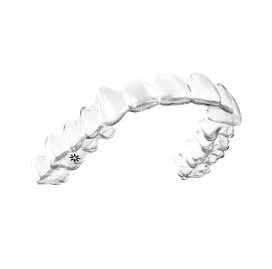Take the next step to expand your comprehensive capabilities.
Your role is key to your patients’ long-term oral health. That includes considering issues affecting the whole mouth, including malocclusion. Restorative and orthodontic outcomes alike can be improved with integrated Invisalign treatment. In fact, 96% of surveyed dentists use Invisalign treatment as a pre-restorative technique.1




Request your guide on comprehensive dentistry.
Please complete the form below, and your exclusive guide will be sent to your email address for download.
Thank you for your submission.
An Align Representative will contact you shortly.




What you will learn


Why tooth movement is critical for oral health, function, aesthetics and patients’ overall quality of life.


How to successfully integrate tooth movement into everyday dentistry.


The role of the general dentists and benefits of minimally invasive procedures.


Why tooth movement is critical for oral health, function, aesthetics and patients’ overall quality of life.


How to successfully integrate tooth movement into everyday dentistry.


The role of the general dentists and benefits of minimally invasive procedures.



